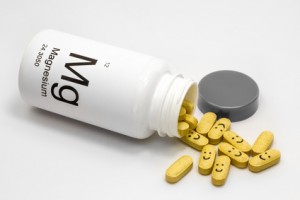
While supplements for dietary or lifestyle needs should be treated as precisely that—supplemental—there are some healthy arguments for several you should keep in your home. These can be oil-soluble nutrients, such as A, D, E, and K., Or water-soluble nutrients, such as vitamin C. Another type of supplement is that which offers an alternative to pharmaceutical medications, such as a CBD extractive as well as a nad supplement liposomal booster product. These supplements can often help to manage stress, anxiety, depression, and other conditions more naturally, without the harsher side-effects that typically accompany designed medications.
1. Fish Oil
If you’re an individual that loves to eat fresh fish, you likely get all the Omega-3 fatty acids you need from your diet. However, many people don’t fall into this group and may benefit from the inclusion of a fish oil supplement. While research on the exact amounts that are appropriate and beneficial is ongoing, taking 1,000 mg soft gel per day can provide support for those who do not consume fish or seafood. The roles of Omega-3s in the human system are protective, promoting eye, heart, and brain health. They may also improve metabolic function, help reduce inflammation, and decrease the impacts of depressive episodes on brain function, although this is still anecdotal to date. What is clear is that we need Omega-3s. For those who cannot consume fish oil, plant-based sources, such as flaxseed oil, maybe a good alternative.
2. Vitamin D
Once upon a time, human beings produced all the vitamin D they needed by exposing their skin to sunlight. For many, this is not an option any longer, due either to employment that keeps them indoors, health considerations, or cultural ideas about exposure to sunlight. Since vitamin D is essential for the creation of folate, which helps make all our cells, and also the synthesis of calcium so we can replace lost bone mass, taking a supplement is often advisable. While it is also advised that you get more than the daily value, a minimum, you should also be careful not to take too much—no more than 4,000 mg per day in the most extreme cases. Since its an oil-soluble vitamin, which is also present in some foods, your body won’t cycle an excess with any efficiency, and levels that are too high can be dangerous.
3. CBD Oil
Hemp is a relative of the marijuana plant that lacks the psychoactive molecule, THC. Internationally, the plant itself has numerous uses, from rope and paper to engine oil. CBD oil is a comparative newcomer in the realm of supplements, and research to discover and substantiate its efficacy continues. Currently, it’s an established treatment for two kinds of epilepsy. There is also mounting evidence that it may assist in the management of conditions from anxiety to Parkinson’s Disease. While the accounts for its usefulness as a treatment of depression, loss of appetite, anxiety disorders, PTSD, chronic pain, and other life-altering diagnoses have yet to be subjected to rigorous and repeated analysis within the scientific community, the sheer quantity of them bears attention. Many individuals benefit from CBD soft gels 900mg, which, when taken carefully and with consideration to any other medications, can substantially improve quality of life.
4. Calcium
Calcium is a mineral commonly found in our foods. However, it’s not omnipresent and does require vitamin D for synthesis. As we age, our need for it increases. All too often, our diets do not take this increase into account and many people in their 40s and 50s cope with osteoporosis and osteoarthritis as a result. Calcium supplements can be a good way to bolster the natural calcium you ingest via a wide range of foods, from dairy to leafy greens and legumes. Because it’s best to maintain adequate levels of blood calcium throughout life in order to avoid the complications of age, anyone can benefit from keeping calcium supplements at home.
5. Vitamin C
While the idea that Vitamin C can either prevent or cure diseases is likely overinflated at best, there are better reasons to keep it in your home. Ascorbic acid is essential in the building, maintenance, and renewal of all cells. It also enables the formation of collagen and the absorption of iron. In essence, just because it won’t cure your cold doesn’t mean the human body doesn’t require it. And the unfortunate truth is that the dietary habits of many people do not provide sufficient amounts of bioavailable vitamin C. Since it’s found largely in fresh fruits and vegetables, something the modern western diet falls short in providing, it’s best to take regular, moderate amounts of ascorbic acid to bolster the food on one’s plate.
While all human bodies require similar building blocks and nutrients to function well, it’s vital to consider factors such as age, metabolic health, other medications, and environmental factors when stocking your supplement collection. Also important is to evaluate the effects of deficiency before seeking medical advice or dosing yourself with whatever is currently popular. That being said, carefully considered, daily supplements can only provide positive health benefits both mental and physical.

Leave a Reply